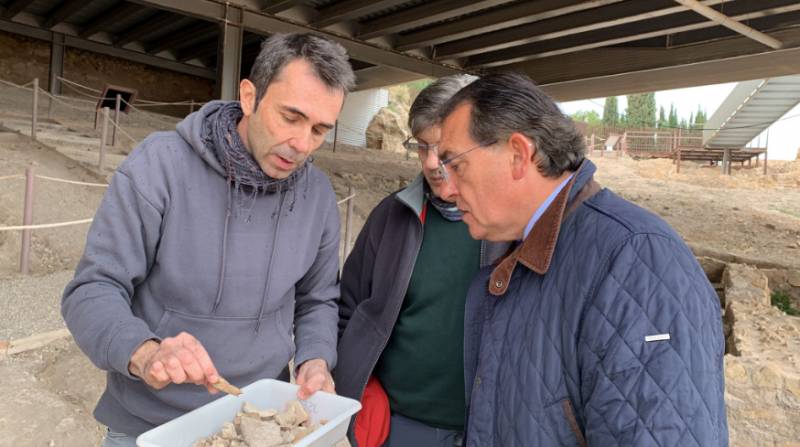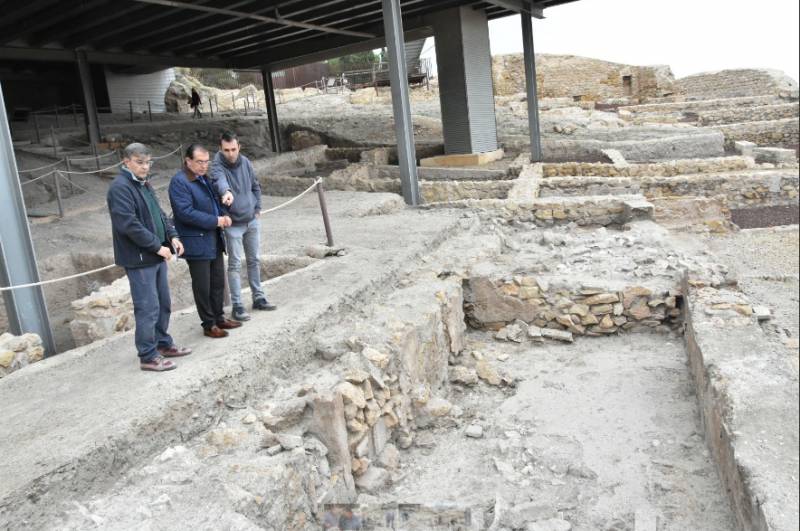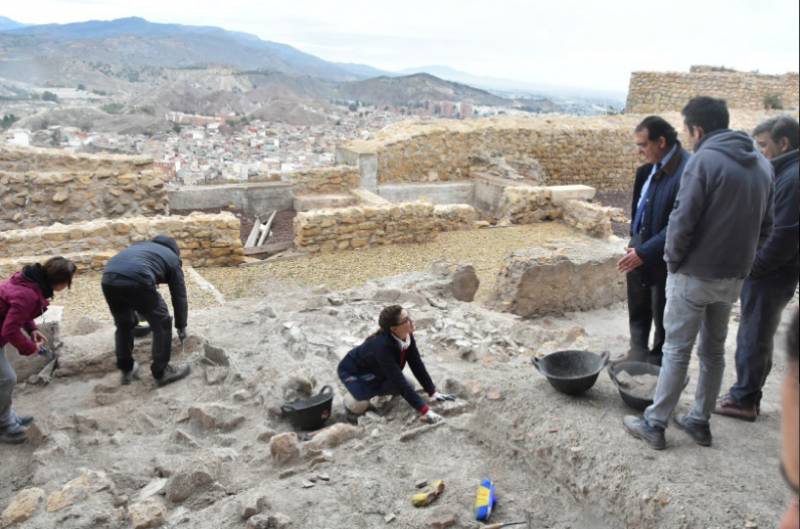Date Published: 05/12/2023
New archaeological excavation of the Jewish quarter of Lorca Castle scheduled for the new year
ARCHIVED ARTICLE -
The precious ceramic and bioarchaeological finds will be examined and catalogued by experts at the University of Murcia
A new excavation of
the Jewish quarter at Lorca Castle will begin in January with the hope of discovering even more treasures and historical artefacts that will offer a fresh glimpse into the rich cultural diversity that has shaped the city over the centuries.
Around 15 experts will participate in the latest dig and the precious ceramic and bioarchaeological finds will be sent to the University of Murcia for a thorough examination.

“This project, which follows those that have been developed since 2002, is emerging as a new opportunity to understand the life of the Jewish community that lived in the Alcalá neighbourhood, in the years immediately after the Castilian conquest of the 13th century,” Councillor for Culture, Santiago Parra, announced on Monday December 4.
January’s excavation will focus on spaces 22 and 33 of house XVI and the ongoing research at the site will continue with an interdisciplinary study of historical, archaeological, archaeozoological, archaeobotanical, construction and conservation aspects of the Jewish quarter. Of course, archaeological digs are always full of surprises, so the team is excited to see what other gems might unexpectedly be uncovered in the new year.
An examination of the relics, Councillor Parra added, will provide an invaluable opportunity to continue exploring and understanding the influence of the Jewish community on the cultural identity of
Lorca and deepening the study of the Jewish presence in Spain during the Late Middle Ages.

Those interested in following the latest archaeological campaign can do so through the
bespoke interactive website and on social media, and the team will also hold several conferences throughout the project and publish their findings in specialised scientific journals.
“At the City Council we are proud to be part of this new chapter in our history, and we are committed to continuing to support archaeological research that allows us to discover and preserve our historical heritage,” a spokesperson said.
“The story of Lorca continues to be written, and each new excavation brings us closer to a deeper understanding of our roots and the diversity that has shaped our culture and our city,” they added.
Images: Ayuntamiento de Lorca
article_detail

|



 Welcome To
Welcome To
 Visit Lorca Castle.Click Here
Visit Lorca Castle.Click Here


 Welcome To
Welcome To
 The Embroidery Museums.Click Here
The Embroidery Museums.Click Here














 “This project, which follows those that have been developed since 2002, is emerging as a new opportunity to understand the life of the Jewish community that lived in the Alcalá neighbourhood, in the years immediately after the Castilian conquest of the 13th century,” Councillor for Culture, Santiago Parra, announced on Monday December 4.
“This project, which follows those that have been developed since 2002, is emerging as a new opportunity to understand the life of the Jewish community that lived in the Alcalá neighbourhood, in the years immediately after the Castilian conquest of the 13th century,” Councillor for Culture, Santiago Parra, announced on Monday December 4. Those interested in following the latest archaeological campaign can do so through the bespoke interactive website and on social media, and the team will also hold several conferences throughout the project and publish their findings in specialised scientific journals.
Those interested in following the latest archaeological campaign can do so through the bespoke interactive website and on social media, and the team will also hold several conferences throughout the project and publish their findings in specialised scientific journals.